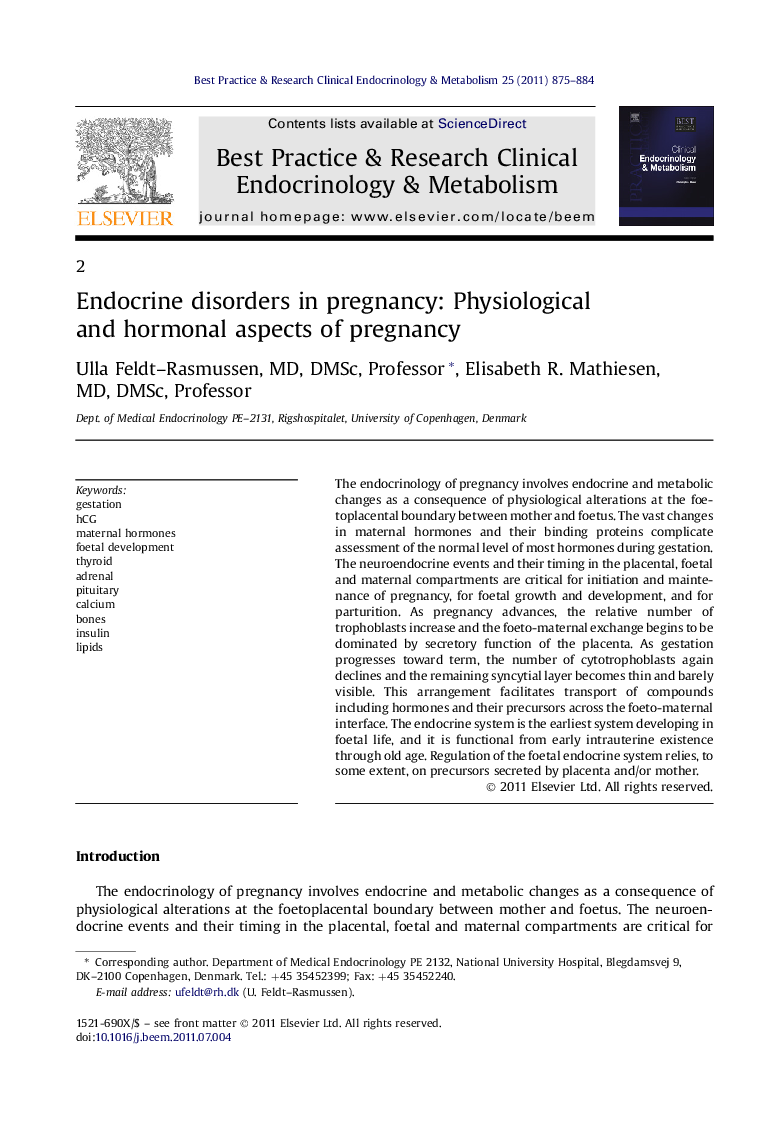| Article ID | Journal | Published Year | Pages | File Type |
|---|---|---|---|---|
| 2791910 | Best Practice & Research Clinical Endocrinology & Metabolism | 2011 | 10 Pages |
The endocrinology of pregnancy involves endocrine and metabolic changes as a consequence of physiological alterations at the foetoplacental boundary between mother and foetus. The vast changes in maternal hormones and their binding proteins complicate assessment of the normal level of most hormones during gestation. The neuroendocrine events and their timing in the placental, foetal and maternal compartments are critical for initiation and maintenance of pregnancy, for foetal growth and development, and for parturition. As pregnancy advances, the relative number of trophoblasts increase and the foeto-maternal exchange begins to be dominated by secretory function of the placenta. As gestation progresses toward term, the number of cytotrophoblasts again declines and the remaining syncytial layer becomes thin and barely visible. This arrangement facilitates transport of compounds including hormones and their precursors across the foeto-maternal interface. The endocrine system is the earliest system developing in foetal life, and it is functional from early intrauterine existence through old age. Regulation of the foetal endocrine system relies, to some extent, on precursors secreted by placenta and/or mother.
► More research focussing on the physiological endocrine changes during pregnancy in order to be able to diagnose endocrine diseases in pregnant women is warranted. ► Search for better methods for measuring endocrine functions during pregnancy. ► Better research collaboration between endocrinologists and specialist in clinical biochemistry warranted in order to accomplish above 2 important purposes.
